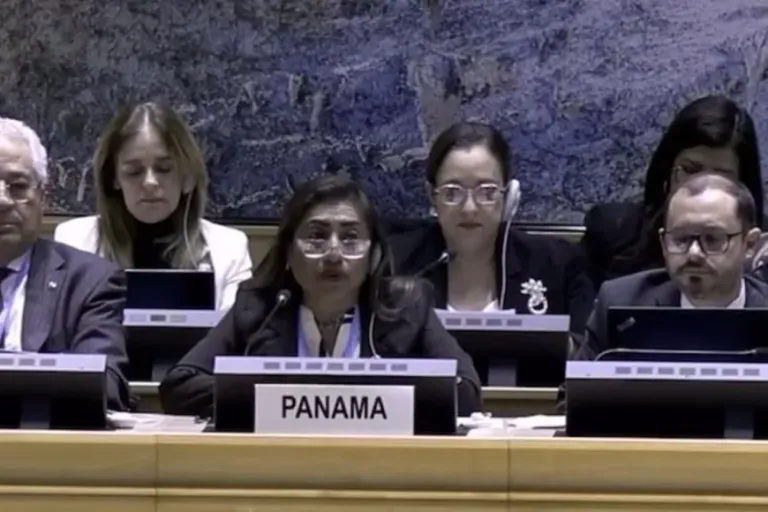Panama successfully completed its fourth Universal Periodic Review before the United Nations Human Rights Council this week. The Central American nation presented its human rights record during the 50th session of the UPR Working Group at the Palais des Nations in Geneva, Switzerland.
An official delegation led by Vice Minister of Indigenous Affairs Doris Bill and Ambassador Juan Alberto Castillero Correa, Panama’s Permanent Representative to the UN in Geneva, defended the country’s progress. The session unfolded under the presidency of Paul Empole Efambe, Vice President of the Human Rights Council and Ambassador of the Democratic Republic of Congo.
Comprehensive National Representation
Panama sent a broad delegation representing multiple government branches and ministries. Officials came from the Ministry of Foreign Affairs, Ministry of Government, Ministry of Social Development, and Ministry of Education. Additional representatives joined from the Ministry of Health, the Public Ministry, the Judicial Branch, and Panama’s Permanent Mission to the United Nations in Geneva.
This diverse composition demonstrated the cross-governmental approach to human rights implementation. The delegation presented a unified front addressing both progress and challenges across different sectors of Panamanian society.
Panama reaffirms its firm commitment to the promotion and protection of human rights as a fundamental pillar of our state policy, [Translated from Spanish] said Vice Minister Doris Bill during her opening statement. We have made significant strides in strengthening our institutional framework and public policies to ensure the full enjoyment of human rights for all people in Panama.
International Engagement and Recommendations
Eighty-nine countries participated in the interactive dialogue, offering observations and recommendations covering numerous human rights areas. Gender equality, inclusive education, and indigenous peoples protection emerged as key discussion points. Delegates also focused on migrant rights and combating violence and discrimination across Panamanian society.
The substantial international participation reflects global interest in Panama’s development trajectory and human rights landscape. This engagement forms part of the regular assessment process all UN member states undergo through the Universal Periodic Review mechanism.
This review process represents a valuable opportunity for constructive international dialogue and mutual learning, [Translated from Spanish] stated Ambassador Juan Alberto Castillero Correa. We have carefully considered all recommendations presented today and will examine them with seriousness and commitment as we continue strengthening our national human rights system.
National Context and Implementation Framework
Panama’s appearance before the United Nations Human Rights Council occurs amid domestic policy shifts under the new administration. President Jose Raul Mulino has recently emphasized national symbol reverence and regional integration while pursuing healthcare system reforms.
The government now faces the complex task of implementing accepted recommendations from the review process. This typically involves inter-ministerial coordination and potentially legislative action to address identified gaps in human rights protection.
Panama’s engagement with international bodies like the united nations reflects its ongoing commitment to multilateral approaches in governance. The country previously demonstrated this commitment through successful international arbitration cases.
Government officials indicated they would provide formal responses to specific recommendations in the coming months. The full implementation cycle typically spans four to five years until the next periodic review examines progress on the same issues.



